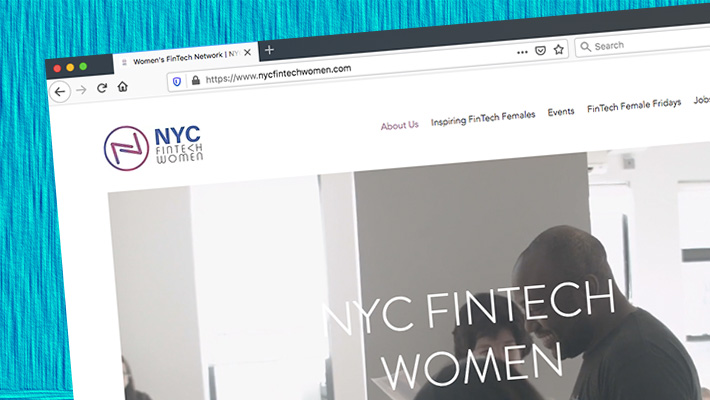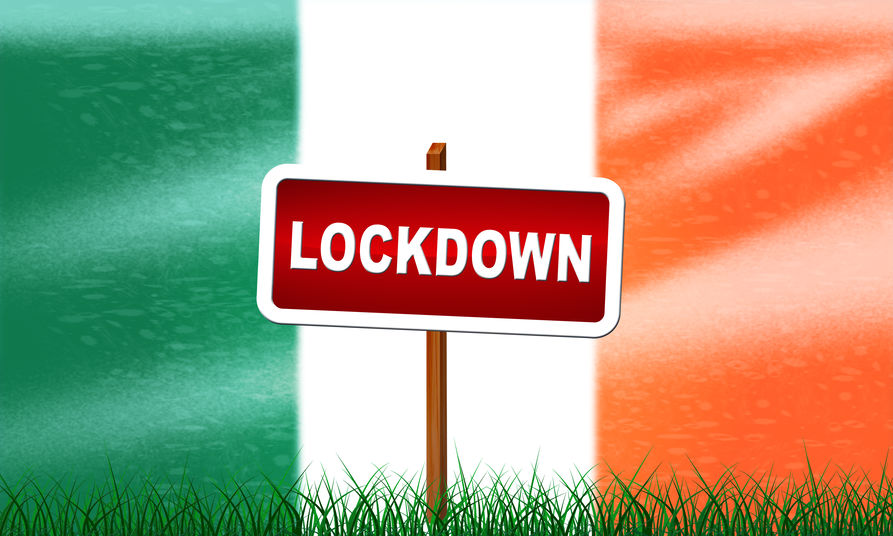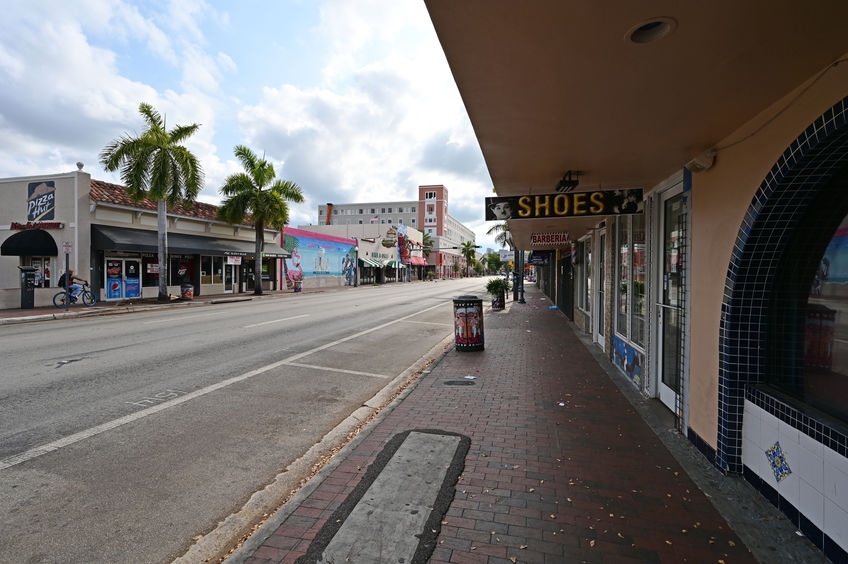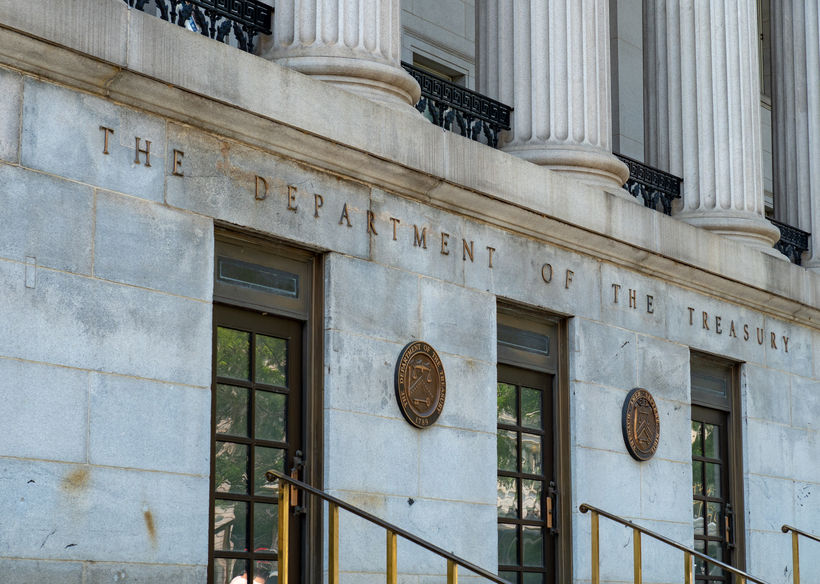Brendan Garrett was a Reporter at deBanked. Articles by Brendan Garrett
How Stimulus Packages are Accidentally Ending Up in The Trash Bin
June 3, 2020 Since March, over 150 million Americans have woken up to find their banks accounts newly graced with checks from the government. Allowed by the CARES Act, this stimulus package, titled the Economic Impact Payment, was dispatched to help ease the short-term financial troubles that arose from covid-19’s disruption of the economy. And while many Americans have received their money from the Treasury, a selection of recipients are dropping their stimuli into the garbage.
Since March, over 150 million Americans have woken up to find their banks accounts newly graced with checks from the government. Allowed by the CARES Act, this stimulus package, titled the Economic Impact Payment, was dispatched to help ease the short-term financial troubles that arose from covid-19’s disruption of the economy. And while many Americans have received their money from the Treasury, a selection of recipients are dropping their stimuli into the garbage.
The reason for this being that the mode of delivery was switched up mid-May. Instead of having the money directly wired to their bank accounts, roughly four million Americans will instead receive their packages via prepaid VISA debit cards. This group is made up of those taxpayers who do not have bank information on file with the Treasury and who had their tax returns processed by the Andover or Austin Service Centers.
Treasury-sponsored and issued by MetaBank, these cards are shipped in a plain envelope that bares the words “Money Network Cardholder Services, and which contains instructions alongside the card: making the stimulus package look more like marketing spam than anything else. As such, numerous complaints have been made about the delivery method, with many of those who received the cards saying they threw out the entire envelope without thought, believing it to be junk mail.
“It really read to me like a scam,” said one woman interviewed by Yahoo! Finance. “So into the shredder it went.”
As well as this, Yahoo! also found that other recipients received cards that had mixed up their names with those of their spouse. A situation that proved confusing given that the cards must be activated via your phone using your social security number and other personal details.
Funds on the cards can be used to directly pay expenses as well as be transferred to personal accounts; they can also be used at ATMs, although the withdrawal amount per day is limited to $1,000, meaning multiple trips to a bank during a pandemic will be required.
Done in an effort to reduce instances of fraud as well as speed up the process of getting money to Americans, communication about the EIPCard setup seems to have gotten lost in the fray.
Going forward, the Treasury will be waiving the fees associated with reissuing an EIPCard to anyone who claims they shredded or threw it out, and initial reissuance fees from earlier dates will be reversed.
How NYC Fintech Women is Keeping its Community Going in a Pandemic
May 23, 2020 How does a community of people continue to support each other and network in a pandemic? What is lost when in-person meet ups are replaced by stop-start Zoom conversations? Do geographical limits even exist anymore when everyone is bound to their homes? These are the questions that NYC Fintech Women are dealing with now.
How does a community of people continue to support each other and network in a pandemic? What is lost when in-person meet ups are replaced by stop-start Zoom conversations? Do geographical limits even exist anymore when everyone is bound to their homes? These are the questions that NYC Fintech Women are dealing with now.
Founded in 2017, NYC Fintech Women is an organization of roughly 5,000 members that aims to provide its members with the opportunity to build a web of connections that might otherwise be out of reach. Open to both men and women, the group revolved around regular gatherings that afforded the chance to rub shoulders with both those entrenched in fintech as well as figures from institutional finance. Ranging from mid-tier employees all the way up to executives, the organization encompasses a broad section of those working in the intersection of finance and technology.
Born out of the frustration that Founder Michelle Tran felt when trying to locate fintech people at New York events which largely catered to institutional and traditional finance, the plan for the organization was two-pronged: get all these fintech types together for easier communication while also creating an environment that will allow women to “build their own board.”
Described by Tran as part of Fintech Women’s ethos, the idea is that you’ll have to build your own team if you’re going to get anywhere. “You really need to build your own personal board in order for any type of career advancement,” Tran explained over a call. “So making sure you’re pulling in the right leaders, the right support systems that are also diverse, and the best way to do that is to have a strong network of people at your fingertips.”
And it’s this ethos as well as the social aspects of community that have been challenged by the pandemic. But determined not to let covid-19 get the best of what the organization has become in the past three years, the group has been forced to adapt.
Like the rest of us, telecommunication is being brought in to replace what once came naturally. Slack will offer the chance to chat as a large group, smaller coffee chats will replace the opportunities to talk amongst peers, and a mentoring program launched in January is in the process of being turned fully virtual. And as well as these developments, the decision to expand beyond New York, a move that’s been on Tran’s mind for a while, is now looking more likely as events go online, removing the barriers that come with location.
“It’s a bit harder to just meet somebody, but we’re going to facilitate a number of different platforms in order to do that,” Tran said. “That’s one of the things that we continue to say is really important, and I think that’s what a lot of people miss too, as we’re all sitting alone in our home or with our families. We missed that engagement that we have with others, so we’re finding ways to do that.”
Ireland’s Alternative Finance Industry and the Coronavirus
May 18, 2020 As the effects of the coronavirus continue to slow down the American economy, around the world, many countries remain in lockdown, with their businesses having been halted. Be it to the north, south, east, or west, of the United States, the results are the same: money has stopped flowing. As such, we took the opportunity to follow up with some of the businesses that featured in our coverage of alternative finance in Ireland last Fall, hoping to see what differed and what was the same in their responses to the pandemic.
As the effects of the coronavirus continue to slow down the American economy, around the world, many countries remain in lockdown, with their businesses having been halted. Be it to the north, south, east, or west, of the United States, the results are the same: money has stopped flowing. As such, we took the opportunity to follow up with some of the businesses that featured in our coverage of alternative finance in Ireland last Fall, hoping to see what differed and what was the same in their responses to the pandemic.
Despite differing in size and range of variety when compared to their North American counterparts, the Irish alternative finance and fintech industries have largely felt the same impacts from covid-19. Certain funders have stopped operations, others have become very cautious, and just like here, some businesses have turned to the government for help.
LEO, or Local Enterprise Offices, is an advisory network for small and medium-sized businesses, which provide guidance as well as offer capital. The Irish government has pointed to these as the point of contact for small businesses owners, with LEO providing microfinance loans of up €50,000. This figure being upped from the pre-coronavirus maximum of €25,000.
Rupert Hogan, the Managing Director of brokering company BusinessLoans.ie, explained that some businesses would be better going with LEO over banks and even some non-banks. Noting that non-bank lenders can’t compete with the rates offered by LEO and, just like in the US, banks can’t act with the speed that these business owners need.
 Hogan, who describes the current situation as “The Great Lockdown,” said that banks “aren’t too helpful, even in the good times,” due to the high rejection rates that SMEs experience when looking for loans. In regards to merchant cash advances, he’s expecting, when the MCA companies reopen, that they’ll be funding at reduced rates, some doing as much as 50% less than their pre-coronavirus amounts.
Hogan, who describes the current situation as “The Great Lockdown,” said that banks “aren’t too helpful, even in the good times,” due to the high rejection rates that SMEs experience when looking for loans. In regards to merchant cash advances, he’s expecting, when the MCA companies reopen, that they’ll be funding at reduced rates, some doing as much as 50% less than their pre-coronavirus amounts.
Jaime Heaslip, Head of Brand Marketing at the MCA company Flender, explained that before the virus, the company was experiencing a period of productivity, with lending activity and amounts deposited being up from previous years. And despite the virus disrupting commerce, the former international rugby player noted that business owners are still coming to Flender for funds.
“We provide flexibility for people, there’s a lot of people coming to us to get contingency funds together,” he said over a phone call, commenting that as well as this, many businesses are looking for financing to move their operations online. “We’re trying to help SMEs get through this and provide as much help as possible.”
Beyond merchant cash advances, business continues to run, says Spark Crowdfunding’s Chris Burge. Being an investment platform, Spark is still active with businesses looking to get off the ground.
“We’ve actually found that we’ve still got a large amount of inquiries coming through,” the CEO and Co-Founder said. “Our pipeline of companies wanting to go onto the platform is very strong, and we’ve been engaging with them all and they’re very keen. They all need money, which, of course, hasn’t changed from before there was a crisis. And they still are needing money, they need that to expand as opposed to survive.”
When asked about changes made because of covid-19, Burge explained that their investor evenings have been disrupted. Previously an opportunity for the investors and investees on the digital platform to meet up personally and pitch each other, these 100-person gatherings are no longer an option. Instead, virtual webinars and assemblies are what Spark has started using to keep up communication between parties.
And on the subject of fundraising, Trezeo’s Garrett Cassidy said that it has become a nightmare under the pandemic. Disrupted communication channels and the inability to pitch to someone in the same room as you have been hurdles, but besides that, Cassidy assured me that Trezeo is still going strong.
 Offering payment structures and benefit bundles to freelancers and the self-employed, Trezeo has seen some of its customer base drop off as unemployment sky-rocketed in the UK, its prime market. Despite this, as more and more people are beginning to go back to work, Cassidy says numbers are rising.
Offering payment structures and benefit bundles to freelancers and the self-employed, Trezeo has seen some of its customer base drop off as unemployment sky-rocketed in the UK, its prime market. Despite this, as more and more people are beginning to go back to work, Cassidy says numbers are rising.
“Now we’re starting to see earnings pick back up again, some of them were the ones who were off work who are now coming back to work. So it’s been interesting watching that but the reality is that they’re also scared. They’re out working every day delivering parcels or food, depending on which, and just working really hard. It’s the most important ones who are paid the least and that have the least protection.”
Looking ahead, Trezeo has been working with the UK’s Labour Exchange to establish a new program that would see the creation of channels to help pre-qualify workers for certain positions. These workers would be pooled, and employers would be able to choose from them, streamlining the hiring process for both sides.
“They need money in their pockets, somehow, quickly,” Cassidy said of workers, whether that be by returning to work safely, or through some government assistance program, the CEO is adamant that people need to stay solvent.
Altogether, Ireland’s alternative finance industry, like others the world over, has been hit hard by the coronavirus’s economic effects. With the country’s phased lifting of the lockdown being plotted out over the course of the summer, the island nation may not see as quick a return to commerce as certain American states, but its fintechs and non-banks hope to stick around, by hook or by crook, as the Irish say, by any means possible.
Cannabis Advocates Hope to Pass SAFE Banking Act in Next Coronavirus Package
May 12, 2020 This week a selection of cannabis associations and lobbying groups wrote to House leaders encouraging them to include the SAFE Banking Act in the next coronavirus relief bill. If passed, SAFE would allow cannabis companies to set up and access bank accounts. Introduced to the House in March 2019, SAFE went through Congress in September and has since been held up in the Senate.
This week a selection of cannabis associations and lobbying groups wrote to House leaders encouraging them to include the SAFE Banking Act in the next coronavirus relief bill. If passed, SAFE would allow cannabis companies to set up and access bank accounts. Introduced to the House in March 2019, SAFE went through Congress in September and has since been held up in the Senate.
Deemed as an essential service, cannabis dispensaries have stayed open during the pandemic, with many reporting a boost in revenue.
“The cannabis industry lacks access to banking services that could eliminate cash transactions and minimize virus transmission,” the letter states. “In 2019, it is estimated that sales of cannabis in the United States topped $12 billion – the vast majority of which were cash transactions. Previously, this situation created an unnecessary public safety risk and undue safety burden on state and local tax and licensing authorities who must receive and process large cash payments. Now, as recent reports show that viruses can live on cash for up to 17 days, the public safety concerns of this cash-only system compound.”
And as worries about contagion rise, so to do concerns about crime, with some dispensaries reporting an increase in burglaries during the pandemic. The hope is that with access to banking, less cash will need to be kept on premises, reducing the risk of theft.
“It’s only getting worse,” said Morgan Fox, a spokesperson of the National Cannabis Industry Association. “At the beginning there was a real spike of crimes against cannabis dispensaries in a number of states, and I have a lot of fear that that’s going to get even worse now. And then on top of that are all the health and safety concerns with cash forcing people to actually touch money; and because it has to be in person, it makes social distancing more difficult.”
At the beginning of April House Speaker Nancy Pelosi said that she wanted SAFE included in the next coronavirus relief bill, that second package has come and gone but perhaps a third time might be the charm for cannabis companies.
Lendinero: How a broker shop is coping with covid-19
May 10, 2020 “Obviously, funding has really come to a standstill.”
“Obviously, funding has really come to a standstill.”
So said Lendinero’s CEO and Founder, Gil Zapata, over a call with deBanked last week. Speaking about how his company, a broker firm based in Doral, Florida, and the industry have been affected by the novel coronavirus, Zapata explained the steps that he and his team have taken to try keep their heads above water.
Following a period of expansion that saw new hires in both their Florida offices as well as their premises in Nicaragua, covid-19’s shutdown of the American economy served as a full stop to what Zapata referred to as “growth mode.” Lendinero has kept the wheels turning by helping business owners secure EIDL and PPP funding and in the process planted seeds he hopes will prove profitable in the future.
Accompanying these PPP loans is the revenue coming from Lendinero’s recent partnership with Benworth Capital. With Benworth being an SBA-authorized PPP lender, Lendinero has acted as an agent for the lending company, assisting them with their focus on businesses in Miami.
To speed up these processes, Zapata and his team created a one-stop portal for potential borrowers.
As well as this, in order to cut expenses, Lendinero had to make significant reductions in its staff, affecting workers in both his North and Central American offices.
“We kept the best of the best and that’s helped out. And we restructured a lot of payments.”
Having brought on new workers during their period of growth, it was many of these who were let go, as Zapata and his colleagues decided that it would be best to keep on the more experienced staff who would not need training and as much oversight.
“We came to the conclusion that whoever is going to stay with us, they know that obviously they need to do something and they need to generate results for us or contribute to us … I think that to be micromanaging people at this time is nonsense.”
With these steps taken, Zapata is confident that Lendinero can continue operating for about a year, but is hopeful that the MCA industry will bounce back over the next six months.
“Something has to happen. Maybe a vaccine comes or maybe it doesn’t come but state governments are probably going to take some sort of action and measures to reopen, and we’ve seen that already. I think in six months from now, it’s not going to be the same growth that we had, but those who are able to come back and open up their businesses will help revitalize the MCA market.”
Study Finds Vulnerable Canadians Ill-Equipped Against Coronavirus
May 4, 2020 Last week Loans Canada, a loans comparison platform, released a survey of over 900 financially vulnerable Canadians. These being defined as those Canadians who rely on low income, who have limited access to credit, and who have little to no savings available, the study found that many of the respondents were at risk of financial troubles from covid-19 due to their restricted means and ineligibility for government welfare programs.
Last week Loans Canada, a loans comparison platform, released a survey of over 900 financially vulnerable Canadians. These being defined as those Canadians who rely on low income, who have limited access to credit, and who have little to no savings available, the study found that many of the respondents were at risk of financial troubles from covid-19 due to their restricted means and ineligibility for government welfare programs.
30% of those surveyed reported that they are unable to access the Canadian Emergency Relief Benefit, a program that offers CAD$500 a week to those whose finances have been negatively affected by covid-19, due to the terms of the package. In order to qualify, one must earn less than CAD$1,000 over the four week period that the claim is for, leaving many who work part-time or who have had their hours cut unable to access the money.
As well as this, the survey recorded that many of these individuals are having difficulty accessing credit, as nearly 50% said that their bank has denied them funding. This coupled with the fact that 80% have experienced a loss of income due to the novel coronavirus, as well as only 12% of respondents having the government-recommended three months of living expenses saved up, paints a grim picture for the future finances of those vulnerable Canadians.
Beyond immediate finances, 73% of those surveyed believed that the pandemic would negatively affect their credit scores, 63% expect to miss paying at least one bill over the next six months, and 78% claim that they will struggle to finance their necessary expenses if the covid-19 situation continues through the summer.
Altogether, the study indicates a need for more financing amongst those likely to be hit hardest by the economic knock-on from covid-19. What remains to be determined however, is whether it will come in the form of governmental relief, credit from their banks, or funding from the non-bank lenders.
Treasury Warns of Audits as Public Companies Return PPP Money
April 28, 2020 In the wake of public outrage at the news that public companies have received millions of dollars from the Paycheck Protection Program, Treasury Secretary Steven Mnuchin today spoke out against such businesses. His comments come after the SBA and Treasury further clarified which businesses actually qualify for PPP, noting that only companies with no access to other forms of capital, such as selling shares or debt, would qualify.
In the wake of public outrage at the news that public companies have received millions of dollars from the Paycheck Protection Program, Treasury Secretary Steven Mnuchin today spoke out against such businesses. His comments come after the SBA and Treasury further clarified which businesses actually qualify for PPP, noting that only companies with no access to other forms of capital, such as selling shares or debt, would qualify.
Speaking on Fox Business, the Treasury Secretary explained that “anybody who took the money that shouldn’t have taken the money, one, it won’t be forgiven and two, they may be subject to criminal liability, which is a big deal … I encourage everybody to look at this and pay back these loans now so we can recycle the money if you made a mistake.” Mnuchin made clear that any company that receives a loan of over $2 million will be audited by the SBA.
A number of cases have made headlines, with Shake Shack and Ruth’s Chris Steak House returning $10 and $20 million, respectively, following calls from the public to refund it. Other publicly funded companies that have returned PPP money include AutoNation ($77 million); Penske Automotive Group Group ($66 million); and the Los Angeles Lakers basketball franchise, which received $4.6 million.
“I’m a big fan of the team but I’m not a big fan of the fact that they took a $4.6 million loan,” Mnuchin said of the Lakers. “I think that’s outrageous and I’m glad they returned it or they would have had liability.”
With the launch of the second round of PPP funding yesterday, the SBA reported that it had processed more than 100,000 loans by 4,000 lenders by 3:30pm that day. Senator Marco Rubio explained on Twitter that a new pacing mechanism had been integrated into the SBA’s E-Tran portal system, lowering the minimum amount of PPP loan applications required for lenders to send a bulk submission from 15,000 to 5,000. The hope for this is that it will enable smaller businesses to reach the funds through more regional lenders and “allow more banks to submit,” explained Rubio.
The Three-Phase Guidelines for Reopening States
April 22, 2020 The Trump administration last week released a set of guidelines on how states and local governments may reopen.
The Trump administration last week released a set of guidelines on how states and local governments may reopen.
Titled ‘Opening Up America Again,’ the document outlines criteria to help classify which stage a region or state is in. Being a guideline rather than an order, it is not an exact prediction of how local and state economies will restart; with this process left to be decided by state governors rather than the president. As such, the plan omits details and specific requirements that would otherwise be left to the states.
The document notes a set of standards that must be met in order to prove eligible for entering each stage. Among these are practices being employed currently, like the establishment of contact tracing systems, increased ICU capacities, and the provision of testing sites for those who are symptomatic of covid-19. However, one standard, the adequate supplying of personal protection equipment and critical medical equipment, has proved difficult across the United States as ventilators, masks, and gowns worn by medical professionals are scarce.
If a state or region meets each of the listed criteria then it enters phase one. In this stage, services, individuals, and employers are suggested to act in their most limited capacity. Vulnerable individuals are asked to continue to shelter in place, and those who live with vulnerable individuals are asked to be mindful of going to work; gatherings of more than 10 people where strict physical distancing is not possible are to be avoided; non-essential travel is to be limited; telework is encouraged; staff common areas are to close; schools and organized youth activities are to be cancelled; large venues can open under strict physical distancing protocols, just as gyms can; and bars are to remain closed.
If the gating criteria are met a second time, the beginning of phase two is signaled. Here many of the guidelines stay the same, except the physical distancing standards are relaxed for large venues, schools may reopen, gatherings of up to 50 people are deemed safe so long as physical distancing is observed, non-essential travel can resume, and bars “may operate with diminished standing-room occupancy.”
And finally, if a state or region shows signs of no rebound of covid-19 and satisfy the gating criteria a third time, they enter the final phase. Vulnerable individuals may resume public interactions while practicing physical distancing; employers can reopen common areas; visits to senior living facilities and hospitals can resume; and large venues, bars, and gyms may operate under less restrictive protocols.
Again, the implementation of these guidelines remains an uncertainty. With states and governors being split over their reaction to the novel coronavirus as well as the level to which they are affected by the pandemic, it is unclear how
many, if any, will adhere to ‘Opening Up America Again.’






























